![]()
Based on the memoir by author Alysia Abbot, Fairyland tells the story of her life, from the time her mother died when she was not quite three, to her father’s passing nearly twenty years later. Her father, Steve, was a poet of minor note and local accomplishment in San Francisco. Had moved them there when she was still young, following the car accident that claimed his wife’s life. It allowed him a space in which to explore his art and his homosexuality. This is a fact which was at odds with his daughter’s more conservative maternal grandparents. Yet, the film is not exclusively about this conflict.
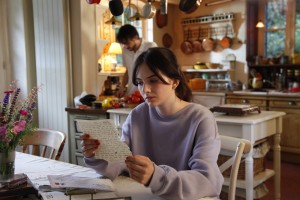
Courtesy Lionsgate
Instead, it is about many conflicts and many joys. It allows the characters to be happy and free and trapped and isolated, or bound by various connections. At times, he gave his daughter too much freedom, and focused entirely on himself, to the detriment of their ability to communicate. Yet, as strained as that sometimes was, there was always love. Indeed, that love is the most powerful part of this film, and something by which some viewers may be overwhelmed.
In many films about the gay community of the 1970s and 1980s, the most common threads are those of found family, which this does touch on, but rarely do we see any representation of the many gay men and women who had biological children and who raised them in places such as the Castro in San Francisco. This is a father daughter story, with a twist, yet that twist only informs and enriches, rather than becoming the entire point. It is a delicate delineation, and where the film falters is where it does, at times, seem like it is only about that hook.
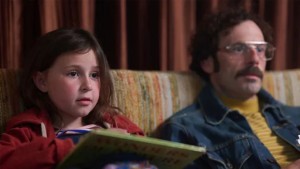
Courtesy Lionsgate
The writer and director of this film, Andrew Durham, is a photographer. It shows, in the way the film is lit, and how the images often attain extreme emotional resonance due to how they are staged. A compatriot of Sofia Coppola, who produced the film, Durham has a deft touch with his actors, and has gotten a performance from Scoot McNairy, as Steve, which is all too human. The early scenes show a man drunk with a new lease on life, exploring all the possibilities his new city provides, while the later ones give space for a man now asking his daughter hard questions that show he doubts his own value in either’s life.
Opposite McNairy are two tremendous talents. First is Nessa Dougherty, who plays the younger Alysia, and brings a lot of innocence and humor to the part. Here is a child that must learn to code switch, and when she gets older, it is perfectly reasonable she becomes who she does. That older version is portrayed by Emilia Jones, who matches McNairy scene for scene, beat for beat. This is the daughter that must learn to accept her life, and grow into the person she needs to be.
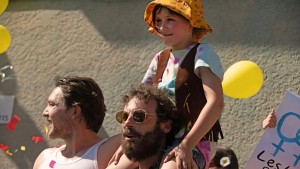
Courtesy Lionsgate
The film is not perfect, though. Occasionally, the score becomes a bit maudlin and seems to almost beg the viewer for a tear or sniffle here or there. This can mostly be forgiven, because not only is this a true story, but the honesty of the emotions on display from the cast and characters outweigh nearly all other considerations. While this is a film in which gay men die, it is not a matter of “kill your gays” but, as one character put it “the truth of so many faces of friends and family in the obituaries that its too much to bear.” This will never be one of the great AIDS films, though it is a very good one. Instead, it is one of the great films about fathers and daughters. See it.
Fairyland is now playing in select theaters.


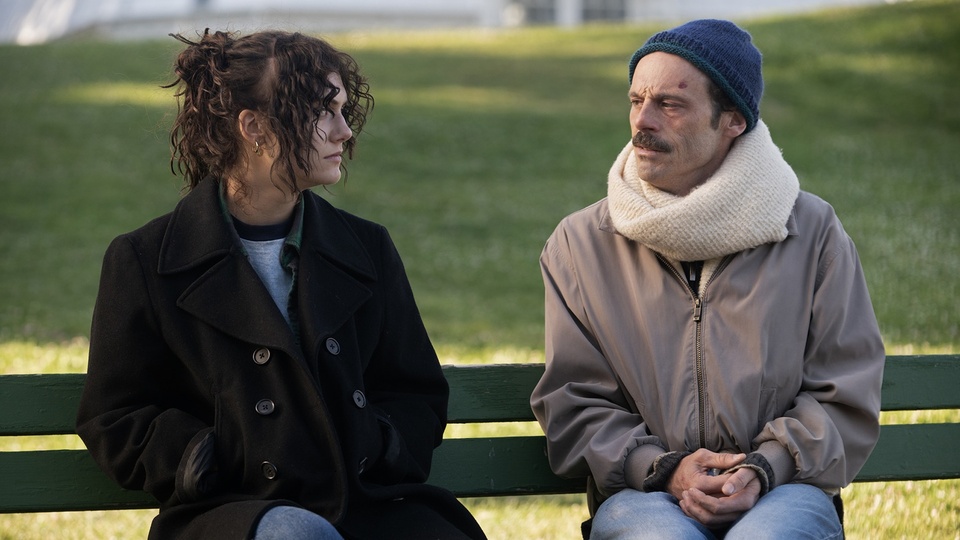
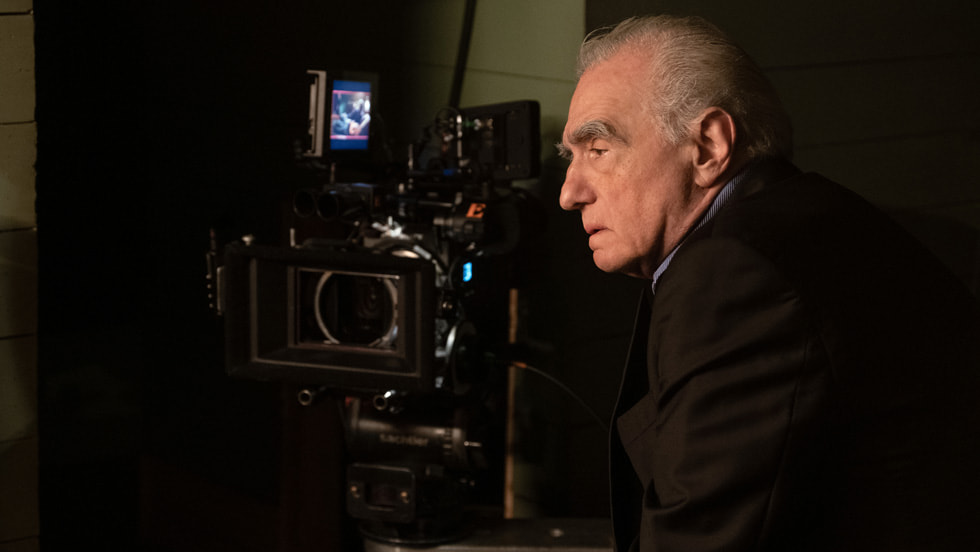




This sounds really promising, adding to the list.